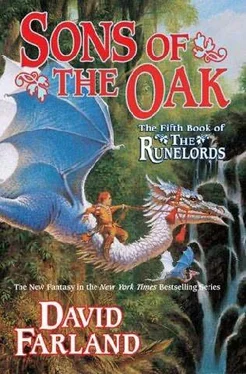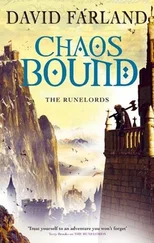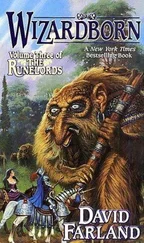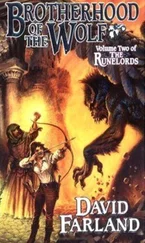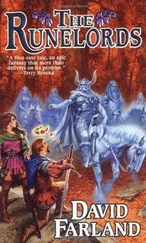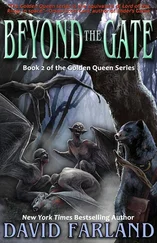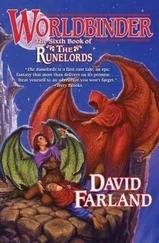David Farland - Sons of the Oak
Здесь есть возможность читать онлайн «David Farland - Sons of the Oak» весь текст электронной книги совершенно бесплатно (целиком полную версию без сокращений). В некоторых случаях можно слушать аудио, скачать через торрент в формате fb2 и присутствует краткое содержание. Жанр: Фэнтези, на английском языке. Описание произведения, (предисловие) а так же отзывы посетителей доступны на портале библиотеки ЛибКат.
- Название:Sons of the Oak
- Автор:
- Жанр:
- Год:неизвестен
- ISBN:нет данных
- Рейтинг книги:5 / 5. Голосов: 1
-
Избранное:Добавить в избранное
- Отзывы:
-
Ваша оценка:
- 100
- 1
- 2
- 3
- 4
- 5
Sons of the Oak: краткое содержание, описание и аннотация
Предлагаем к чтению аннотацию, описание, краткое содержание или предисловие (зависит от того, что написал сам автор книги «Sons of the Oak»). Если вы не нашли необходимую информацию о книге — напишите в комментариях, мы постараемся отыскать её.
Sons of the Oak — читать онлайн бесплатно полную книгу (весь текст) целиком
Ниже представлен текст книги, разбитый по страницам. Система сохранения места последней прочитанной страницы, позволяет с удобством читать онлайн бесплатно книгу «Sons of the Oak», без необходимости каждый раз заново искать на чём Вы остановились. Поставьте закладку, и сможете в любой момент перейти на страницу, на которой закончили чтение.
Интервал:
Закладка:
Rhianna heard a cough, peered down at Sir Borenson. It was his coughing that had wakened her.
He was still breathing shallowly, but he peered at her through slitted eyes. “You made it,” he whispered. “Now get out of here. Bring help if you can.”
“I will,” she promised.
She dropped the saber at his side, in case he needed it. She didn’t want to lug the thing down the beach. So she took only her dirk, jogged to the beach where the sand was wet and firm, threw off her shoes, and ran.
Three miles or thirty? she wondered.
She ran, feet pounding the sand, heart hammering, ignoring the stitch in her side and the burning that came to her legs. She gripped her dirk firmly, just in case.
Run, she told herself. Nothing else matters.
Hours later, in the heat of the day, Myrrima, Captain Stalker, Smoker, and a dozen other crewmen marched up the beach. It was hours past noon when they found Rhianna’s blade lying in the surf, half buried in sand.
Myrrima picked it up, wiped it dry, and called out nervously, “Rhianna? Borenson? Is anyone here?”
There was no reply, only the soughing of the wind over the sands.
Smoker inhaled deeply from his long-handled pipe and peered toward the shore. “I cannot feel their heart fires,” he whispered. “They are either dead or far away from here.”
Stalker and the others searched for tracks, but found none. What the tide had not washed away, the morning wind had.
“Rhianna would not have left her weapon like this,” Myrrima said. She grieved, fearing the worst.
So they marched on for an hour, calling for Rhianna and Borenson, the despair gnawing at Myrrima’s gut, until at last they saw the black ribs of the boat lying in the sand, and found Borenson beside it.
He was pale and sweating, looking as if he would die. But he wept when he saw Rhianna’s blade and heard the news.
“Rhianna left just after dawn,” he told them. “She waited for daylight, so the strengi-saats wouldn’t attack, and then ran for help.”
With a heavy heart, Captain Stalker whispered, “My guess is that she did not wait long enough.”
32
Why should I weep for a man in prison, when I am held captive by my own desires?
— Mad King Harrill (upon the imprisonment of his son)Fallion clung to his rangit as it raced along an open road. The dusty road itself shone a steady silver-gray in the starlight, but the foliage beside the road ranged in hues. Open fields that basked in the moonlight were a darker gray, while in the shadowed woods the boles of trees were black slats beneath the foliage.
Strengi-saats, attracted by the sight of running beasts, raced beside them, but dared not attack the well-armed troops.
The land seemed dead. No dogs barked or raced out from the shadowed cottages at the sound of approaching strangers. No cattle bawled in the barns as if wanting to be milked. No smoke coiled lazily from chimneys.
The land had been swept clear of life. Even the sheep were gone.
Where? Fallion wondered. But he knew.
The strengi-saats had eaten everything that moved.
The ride was jarring. Within an hour, every bone in Fallion’s body seemed to ache, and he could hear Jaz whimpering on the rangit behind him.
They climbed hills and rode through shadowed vales. And in the cool hours of morning, when a chill wind had begun to numb his hands, they topped a mountain pass and looked down into a valley beyond.
At last, there was a city with smoke coming from chimneys. The valley below was black with fires, choked with them, and in the silver moonlight, he could see masses of men-or something that looked like men-toiling in the darkness.
It’s an army, he realized. An army hidden here at the edge of the world.
And what an army!
As the rangits bounded down the slopes with renewed energy, eager to be home, they passed fortified bulwarks and deep trenches, until at last they reached the encampments. Fallion soon saw that what he’d thought to be cottages were in fact tents. What he’d taken to be hearth fires were forges, burning in the open air.
Hammers rang in the night, and manlike creatures called out with strange groaning cries.
As he neared, he saw creatures with warty gray skin scampering about on their knuckles, bringing fuel for the forges. Others were dragging logs down from the hills, denuding the mountainsides.
They stared up at him as he passed, and their gazes chilled Fallion to the bone. The creatures were not human, he was sure. There was no joy in their eyes, no sadness or any other emotion that he could name.
Just deadness, yawning emptiness.
At the forges he saw workmen, some Bright Ones, some gray men, hammering blades, fashioning helms and axes.
They’re preparing for war, Fallion realized, but with whom?
And quickly he figured it out. Once, long ago, in days so far past they seemed to be legend, black ships had sailed from the west, surprising the folk of Mystarria.
The ships carried the toth, and their assault had nearly decimated the world.
The creatures hammering out weapons in this dark vale would be far more dangerous than toth, Fallion suspected. They formed the heart of an army from the netherworld.
There would be men who would join their cause, Fallion knew, men like those that had ridden with King Anders-mercenary warlords from the north, embittered nobles from minor houses, cruel and cunning men eager for a profit.
Fallion tried to guess how large the army might be. Two hundred thousand? Five hundred? He could not guess. The unending city sprawled across the valley, rose into nearby hills, and spread beyond them for unguessed distances.
How will anyone save me? he wondered.
He thought of Borenson lying on the ground, his belly pierced by a lance.
They won’t save me. He realized. They can’t. Even if whole armies sailed from Mystarria, they wouldn’t be able to bring enough men to penetrate the enemy defenses.
It was with a rising sense of despair that they passed through the vale, rode up a winding mountainside, and entered a bleak fortress, its walls crude but thick and functional.
Once inside the city walls, the Bright Ones dragged Fallion and Jaz to a heavily guarded building, and into a dungeon where the tortured cries of men and women could be heard.
They passed a cell where a young woman sobbed noisily, cradling her right arm, trying to stop the bleeding from a stump where her hand should have been.
They were taken to a small cell and chained to a wall, their hands stretched overhead, the weight of their whole bodies resting on their wrists.
The prison cell consisted of three walls made of heavy black basalt blocks piled one atop another. The fourth wall was formed of iron, bars with a small door in it.
The bottom of the door had a clearing of perhaps three inches, just tall enough so that a plate could be slid under, for those who were lucky enough to eat.
Fallion and Jaz were not afforded the luxury of food. They were left hanging against a cold stone wall, slick with greasy water and mold.
There was no light.
Fallion could sometimes hear the snarls of strengi-saats deeper in the prison, and he feared that they prowled the hallways. He hoped that the bars would keep the monsters out.
And he heard Jaz crying, his young frame shuddering.
Fallion wanted to hold his little brother, offer him comfort, but he couldn’t even see Jaz’s face.
Jaz asked after a long while, “Do you… think that they’ll kill us?”
“We’re worth… more alive.” Fallion could not get his air. “They’ll probably hold us-for ransom.”
“What kind of ransom?”
“Forcibles, gold. Maybe… land,” Fallion said.
Читать дальшеИнтервал:
Закладка:
Похожие книги на «Sons of the Oak»
Представляем Вашему вниманию похожие книги на «Sons of the Oak» списком для выбора. Мы отобрали схожую по названию и смыслу литературу в надежде предоставить читателям больше вариантов отыскать новые, интересные, ещё непрочитанные произведения.
Обсуждение, отзывы о книге «Sons of the Oak» и просто собственные мнения читателей. Оставьте ваши комментарии, напишите, что Вы думаете о произведении, его смысле или главных героях. Укажите что конкретно понравилось, а что нет, и почему Вы так считаете.
